Normal Math Worksheets Activities With Answers for Ages 3-9
9 filtered results
-
From - To
Discover a variety of engaging normal math worksheets designed for children aged 3-9! Our activities are crafted to support young learners in developing essential math skills through fun and interactive exercises. Each worksheet includes clear instructions and answers, making it easy for both teachers and parents to guide students. From counting and basic addition to more complex concepts, our worksheets cater to a range of abilities. Foster a love for math with colorful, themed exercises that make learning enjoyable. Perfect for classroom use or at-home practice, these resources are ideal for reinforcing knowledge while building confidence. Start your child’s math journey today!
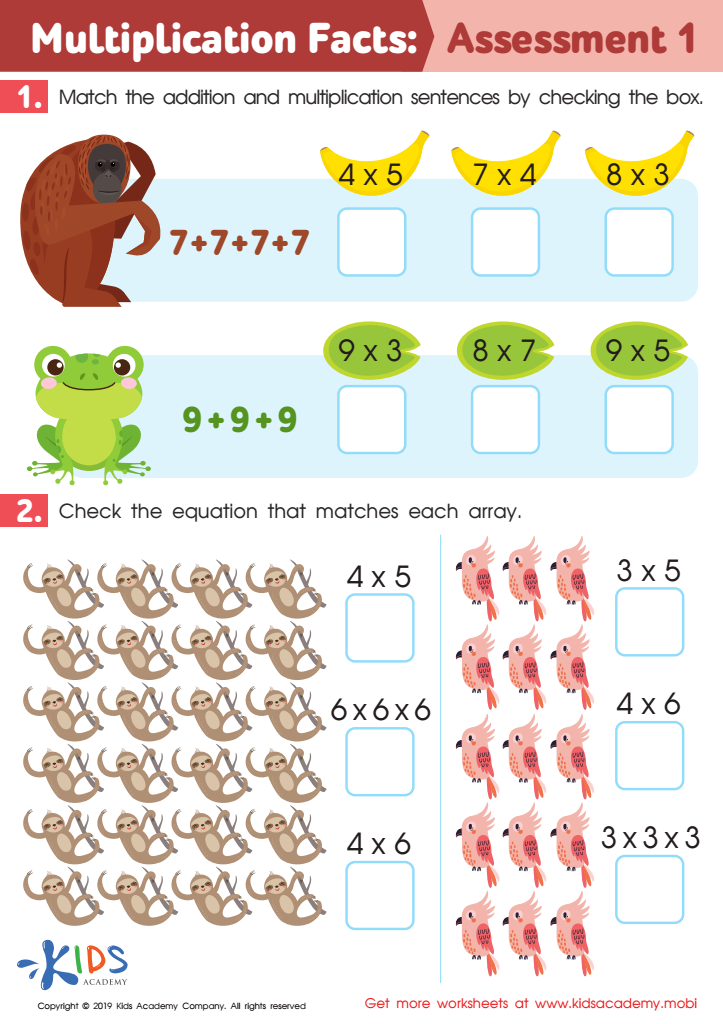

Multiplication Facts: Assessment 1 Worksheet
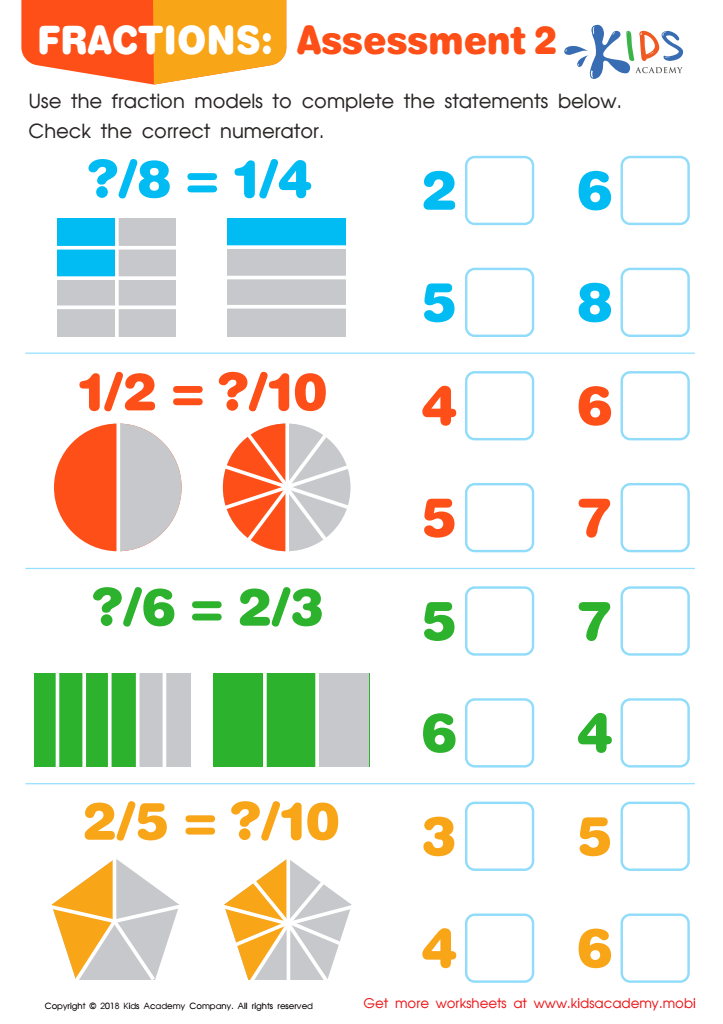

Fractions: Assessment 2 Worksheet
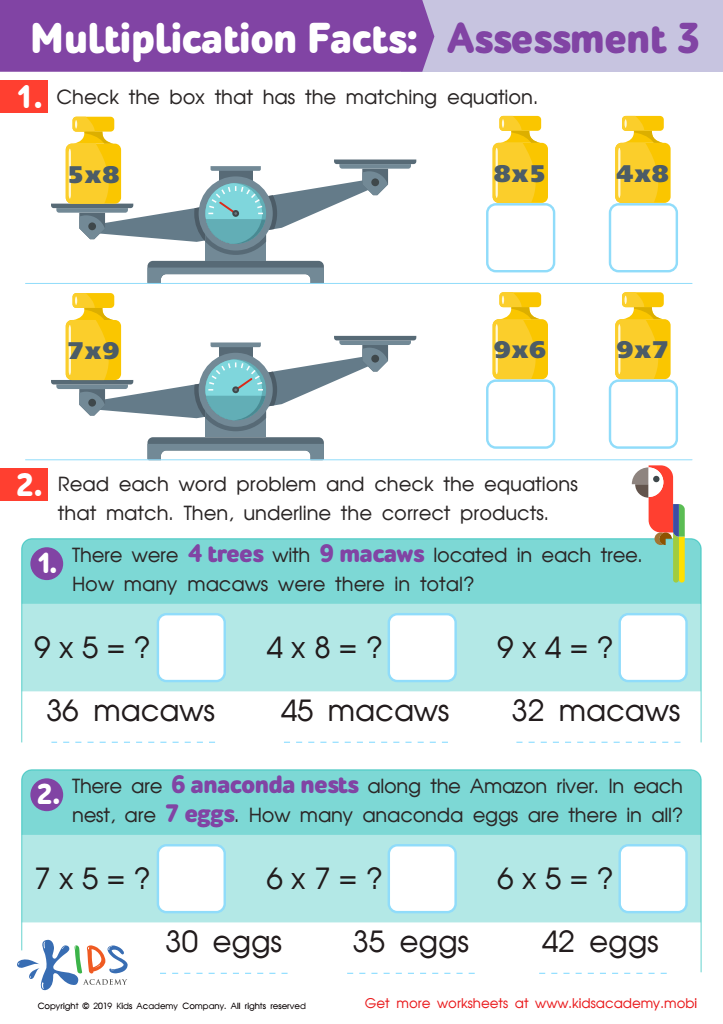

Multiplication Facts: Assessment 3 Worksheet
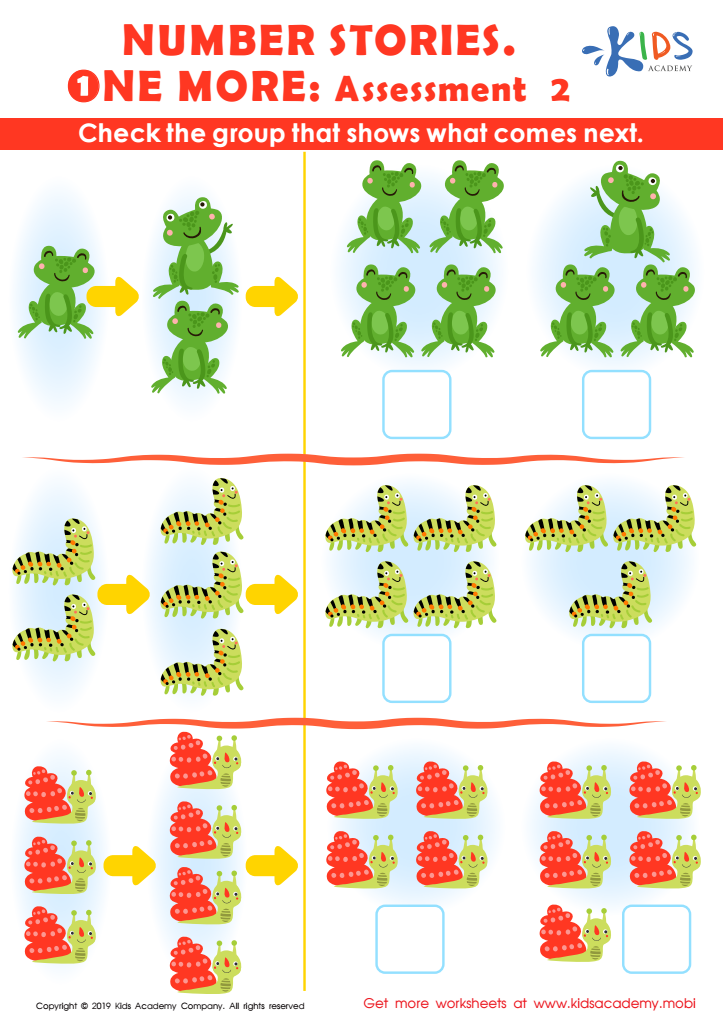

Number Stories One More – Assessment 2 Worksheet
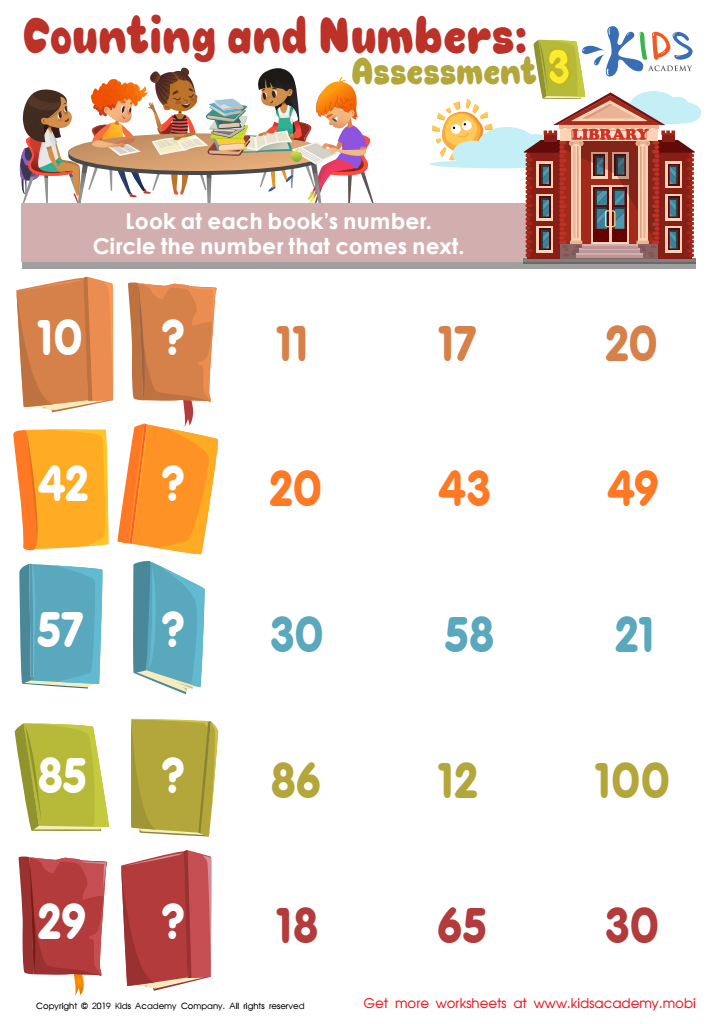

Counting and Numbers: Assessment Worksheet
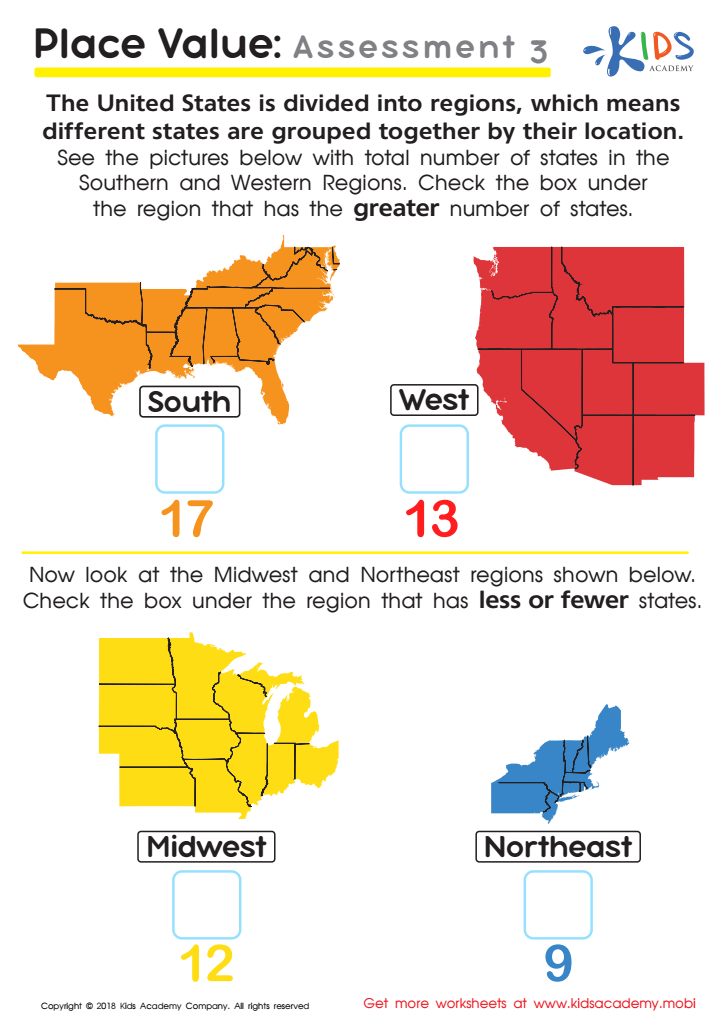

Place Value: Assessment 3 Worksheet


Word Problems: Assessment 2 Worksheet
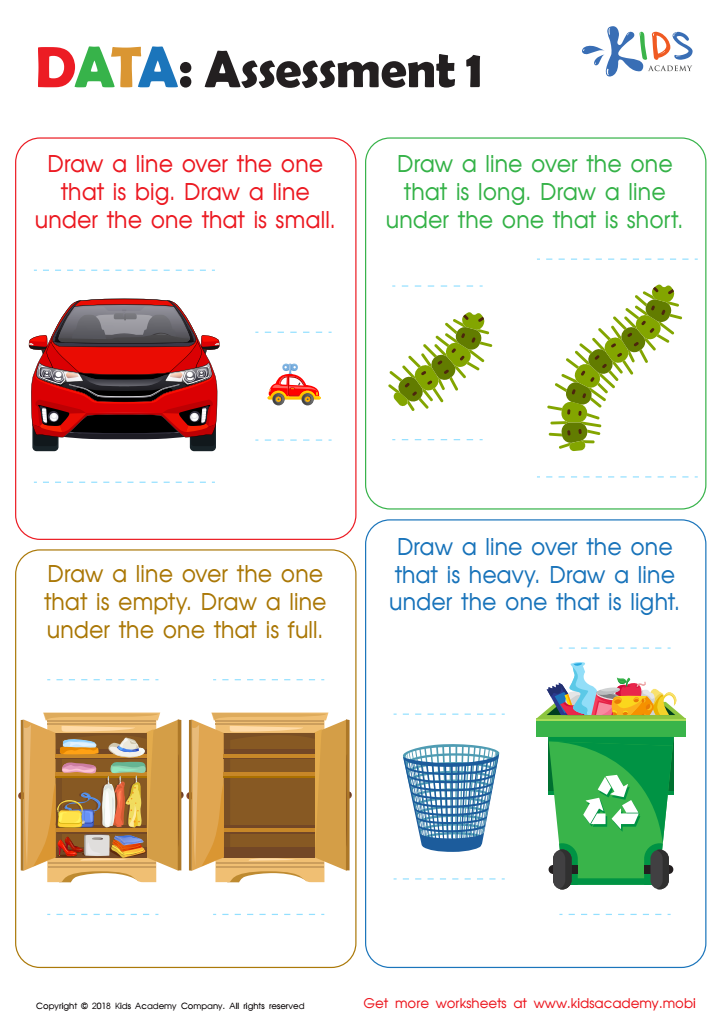

Data: Assessment 1 Worksheet
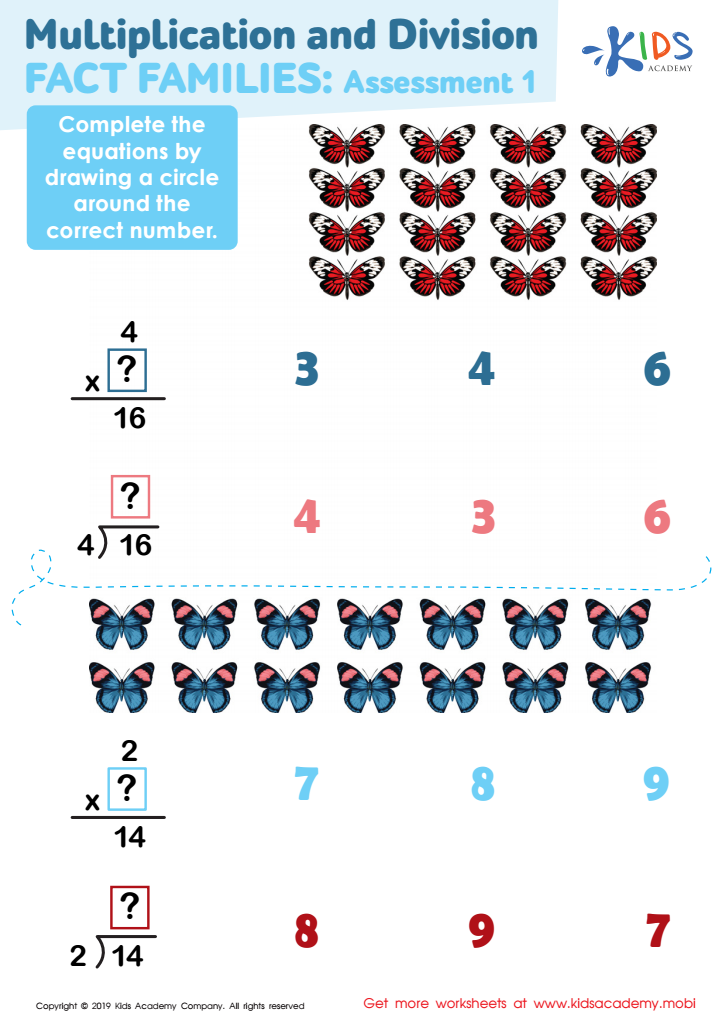

Multiplication and Division Fact Families Assessment 1 Worksheet
Normal math activities for ages 3-9 play a crucial role in early childhood education and development. At this young age, children are naturally curious and eager to explore their environment, and engaging them in math activities helps foster critical thinking and problem-solving skills. These activities lay the groundwork for a strong mathematical foundation, enabling children to grasp more complex concepts later on.
Parents and teachers should care about these activities because they not only support cognitive development but also contribute to social and emotional skills. Group activities encourage collaboration, communication, and sharing, while independent tasks promote self-confidence and perseverance. By integrating enjoyable and age-appropriate math challenges, educators can create a stimulating learning environment that motivates children to engage and explore.
Additionally, providing answers to these activities helps parents and teachers assess a child's understanding and progress, facilitating targeted support where needed. This holistic approach to learning nurtures a positive attitude towards math, combating anxiety and fostering a lifelong appreciation for the subject. Ultimately, playing a proactive role in normal math activities helps children build essential skills that will benefit them throughout their academic journey and beyond.
 Assign to My Students
Assign to My Students







.jpg)








